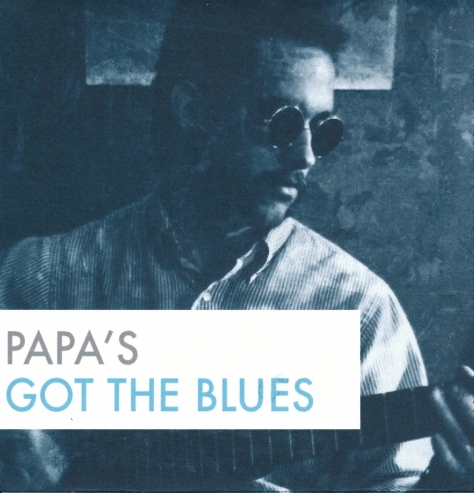
Call and Response (CaD Ps 134) – Wayfarer
Praise the Lord, all you servants of the Lord
who minister by night in the house of the Lord.
Psalm 134:1 (NIV)
My nephew Sam and his family came to visit last Sunday to hear Uncle Tom’s message among our local gathering of Jesus’ followers and hang out with me and Aunt Wendy for the day. Sam mentioned that in their hour-long drive that morning they’d been listening to the music of an artist that his father introduced him to back in his childhood.
I love all kinds of music, and I consciously endeavored to introduce our daughters to all kinds of music. I even made compilation CDs of different genres and wrote liner notes to introduce them to some of the classic artists and songs of the genre. One of my favorites was Papa’s Got the Blues. In the liner notes, I described the connection between the blues and black gospel. One of the devices that both used is “call and response.” The lead singer calls out in song and the congregation/crowd responds with a word or phrase.
While the device is widely used in more recent musical genres, it is ancient.
Today’s chapter, Psalm 134, is the final in a series of “songs of ascent” that the editors who compiled the anthology of Hebrew song lyrics put together. The song is a fitting end to this section. It is comprised of only three-lines that were an ancient version of “call and response” that was sung between pilgrims who had spent the day worshipping at the temple and are leaving at nightfall Levites working at the Temple.
Members of the Hebrew tribe of Levi were responsible for the care, upkeep, and activities of the Temple (except for priestly acts that could only be done by descendants of Aaron). The lyrics of the song picture exiting worshippers blessing the Levites who will remain at the Temple to perform their duties through the night. The pilgrims sing:
Praise the Lord, all you servants of the Lord
who minister by night in the house of the Lord.
Lift up your hands in the sanctuary
and praise the Lord.
The Levite(s) then bless the worshippers as they exit:
May the Lord bless you from Zion,
he who is the Maker of heaven and earth.
The reality is that “call and response” is actually a broader spiritual theme in the psalms and in the Great Story. Many psalms begin with a “call” to God anticipating the “response” to the song, prayer, and petition. In 1 Samuel, God “calls out” the boy Samuel who is confused until the priest instructs him to provide the response “Speak, Lord, for your servant is listening.” In the Jesus story, a blind man incessantly “calls out” to Jesus and Jesus responds by healing him.
In the quiet this morning I find myself meditating on the spiritual notion of “call and response” which works in both directions. God’s Word and Spirit may “call out” to me. Am I listening? Will I respond? How will I respond? At other times, I am like the songwriters of the psalms, calling out to God in faith that God will respond. Either direction, there is an interaction that is relational.
“Here I am!” says Jesus in Revelation 3:20. “I stand at the door and knock. If anyone hears my voice [calling] and [responds, as in] opens the door, I will come in and eat with that person, and they with me.“





